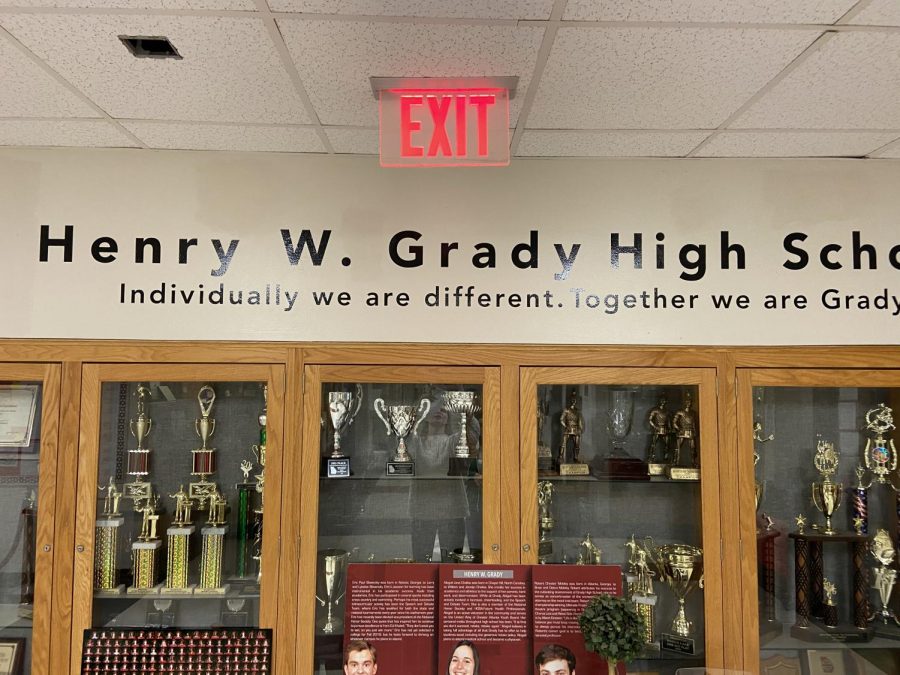Grady should take renaming opportunity to “distance ourselves from remembering people with buildings”
“Henry W Grady High School” is written on the wall of the lobby of Grady High School. At this phase in the name changing process, the Grady community is currently in the middle of deliberations over what name should be recommended to the Board for consideration.
September 14, 2020
Dear Editorial Board,
I write to you not in the endorsement of a particular name option, but in reprobation for renaming our school after a person. The Southerner Editorial Board recently advocated for Ida B. Wells as the next namesake of our high school. Though I have no doubt that this editorial was well researched and modeled journalistic integrity, and that Wells was a model… I fear that the nature of characterizing people makes this a poor choice for a name.
The editorial explained that advocates of place/concept names believe no person is perfect. It takes the position we can look through our “21st-century lens” in order to make determinations. I believe the problem is much deeper than this. People are by definition subjective. No amount of research can adequately characterize a person. We will never have seen their day to day experiences, and so making objective determinations is impossible. There is no metric for why one candidate is better than another.
Continuing, I think it is somewhat ironic that the Southerner takes a position that place names might exclude a portion of the student body whilst being a majority white institution. That is not to say that the Southerner should not have made a recommendation, but that our subjectivities mean that people cannot ever fully understand each other. Thus, to recommend a person as “[encapsulating] the essence of the ideals Grady’s student body cares about” is flawed. The embarrassing rift between white and nonwhite Grady means we just do not know.
Furthermore, perceptions of what is positive and what is negative have changed drastically throughout time. Our perceptions of who is a good person are not constant. I was taught some people were unequivocally good (Mahatma Gandhi, Dr. Martin Luther King, etc.) but came to find out they had their upsetting flaws. What we consider now to be a positive, may not be such in 20 years. As a community, having to rename our school from a problematic person twice is something we should avoid, even if the chance is slim. I ask the Editorial Board, how can one judge another “in the context of the time”; what makes the “21st-century lens” a good one? Unless we can meta-view our analysis, we can never understand whether a person will stand the test of time. Grady himself was for a long time considered a liberal reformer.
Be it Ida B. Wells or John Lewis High, a sign on a wall could never accurately describe a person. People are not objects. They cannot be explained or denoted. I believe as a community, we ought to distance ourselves from remembering people with buildings. Let us instead, work to remember community leaders, flaws and all, through thought, conversation and education.
Respectfully and with love for my community,
Nicolas Kamel






